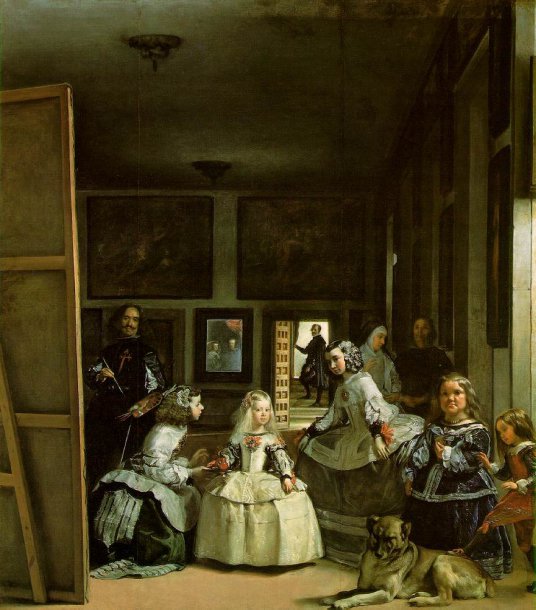'Las Meninas' de Vélasquez analisado por Michael Jacobs no seu último livro
Published27 Jul 2015

O último livro do Michael Jacobs, que não pôde terminar, por razões de doença, dedica-se à análise da famosa obra de Vélazquez, 'Las Meninas' que inspirara já as reflexões de Michael Foucault. O The Guardian publica um excerto do texto, onde Jacobs explica como tudo começou:
The envelope, postmarked Madrid, torn slightly on the lefthand corner, released, on opening, the pieces of a puzzle. “A jigsaw postcard,” explained a handwritten note inserted amidst the scrambled contents. “I found this in the gift shop of the Prado,” continued the mysterious sender. “I couldn’t decide at first whether you would want the picture as a fridge magnet, a notebook cover, a mouse pad, or a laminated coaster.” The rest of the message, I gathered, would only be revealed once I had put the card together.
I was able to do so almost without thinking. I knew the painting so well that I felt now almost extraneous to its reassembly. As if I was just a spectator watching a group of actors silently taking up their positions at the start of a play: the painter behind his easel; the child princess centre stage, the maids of honour alongside her; the shadowy couple behind; the dwarf and midget in front; the mastiff beside them; the lone courtier in the distance, posed on a flight of steps.
I turned the card over carefully, as if handling evidence from a crime scene. I glanced automatically over the identifying inscription reading “Diego Velázquez, Las Meninas, 1656, Museo del Prado”, before turning to a signature as cramped and barely decipherable as the sender’s handwriting. I pored over it for ages, until suddenly I realised whose it was. The person I remembered simply as Royce, whom I had not thought of in more than 30 years.
We had studied Spanish together during our privileged days at a school attached to London’s Westminster Abbey. I had been with him briefly in Madrid as a 17-year-old, and had even gone with him once to the Prado. He did not share then my great enthusiasm for the visual arts, and had once mildly mocked me for socialising at school with an intellectually pretentious and elitist group whom he liked to characterise as the “swarthies”. Royce and I had little in common, other than an interest in Spain and the Spanish language, which he professed to have cultivated largely in the belief that the Hispanic world would one day be the driving force behind the global economy. He envisaged a career as a businessman. He went on to achieve this ambition, as I discovered from regular Christmas cards he persisted in sending me for several years after we had last seen each other.
O texto completo, no The Guardian
